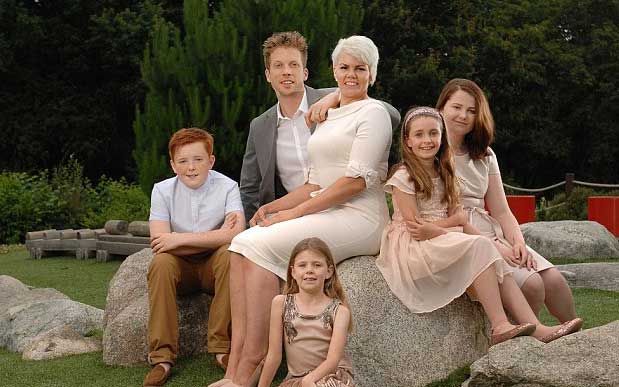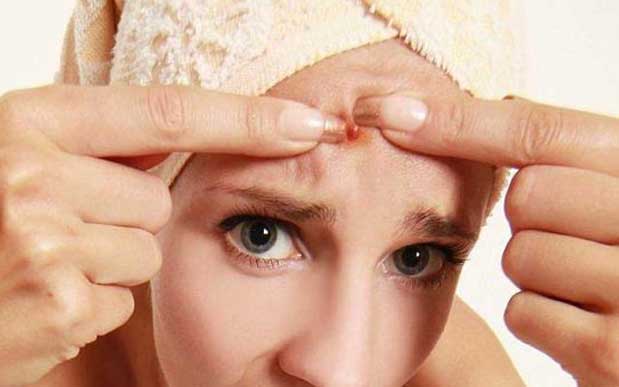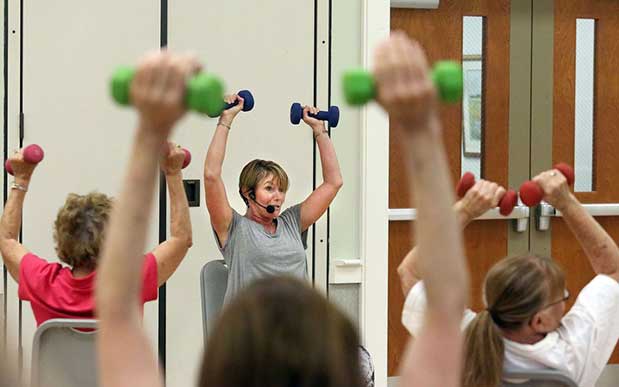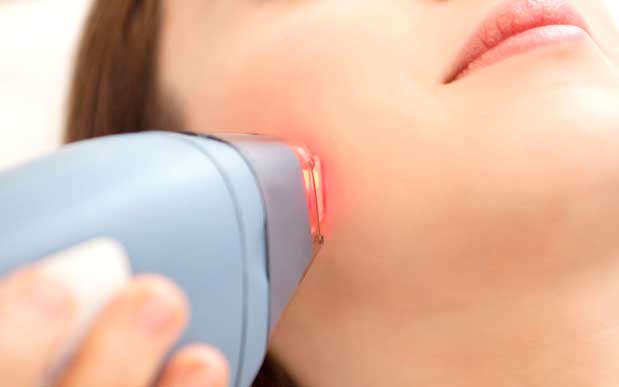
Cancer risk of breast implants 10 times higher than first feared
The number of women at risk of blood cancer triggered by the most popular type of breast implant used in Britain has been ?hugely underestimated?, warns a world authority on a newly emerging disease.
American plastic surgeon Professor Mark Clemens, who has been tracking cases since the first were reported in 2011, said while ?still very rare?, the true incidence was ten times higher than women were often told.
Breast implant-associated anaplastic large cell lymphoma, or BIA-ALCL, has been identified in 173 patients worldwide. At least 11 of them are British.
However, the numbers currently being seen ?could be just the tip of the iceberg?, according to one NHS breast surgeon who has treated three women with the disease in the past year.
BIA-ALCL is not breast cancer, but a type of ALCL, a cancer that develops in the lymphatic fluid, part of the immune system, which can circulate throughout the body forming solid tumours. Women aged from the mid-30s to over-60s have been affected, and problems are typically seen at least four years after the implant operation.
One patient struck down with the illness is 30-year-old Charlotte Fouracres, who claims she was not warned about the risk when she had an augmentation in April 2012 to take her from a B to a D cup.
Last July the teacher from Colchester, Essex, discovered a lump the ?size of a 5p piece? at the top of her right breast, near the cleavage, and sought medical advice.
The mother-of-four was referred by her GP to a breast-screening centre. It performed an ultrasound scan and needle biopsy, which confirmed ALCL. She started chemotherapy immediately, but the treatment failed to halt the disease.
After four months, scans revealed that her tumour had spread to her chest wall and was inoperable.
Charlotte said: ?My right breast was swollen, felt burning hot and I had developed a red, itchy rash. I became unable to raise my right arm to brush my hair or teeth and could no longer cook or drive.
?I felt absolutely lost with no control over my body. I had to contemplate the unthinkable ? that I might not see my children grow up.?
With her disease progressing at an alarming rate, Charlotte?s doctors sought specialist help. She was referred to consultant breast surgeon Fiona MacNeill at cancer centre The Royal Marsden NHS Foundation Trust in London.
Ms MacNeill, who had treated two other patients with BIA-ALCL, said: ?It?s a new cancer, so many doctors don?t recognise it when they see it.
?To diagnose BIA-ALCL as distinct from ALCL, specific tests have to be carried out.
?Although Charlotte was put on the correct treatment for regular ALCL, it is possible the BIA-ALCL does not respond well to the type of chemotherapy used to treat the more common form.?
Charlotte was given seven cycles of a ?10,000 biological therapy drug called brentuximab. This mimics immune-system antibodies that attacked and destroy tumour cells. ?This new drug was amazing,? said Ms MacNeill. ?The disease melted away in front of our eyes.?
This was followed by surgery in April to remove Charlotte?s implants, and she has been told she has no remaining cancer.
She will need monitoring for the next five years, with scans every three to six months and then yearly, to guard against recurrence.
She said: ?After having two children, my body changed. I suppose I had the boob job to boost my self-esteem. Now, looking back, maybe having smaller breasts wasn?t such a bad thing after all.?
Earlier this month French health authorities confirmed a ?clearly established link? between implants and the development of BIA-ALCL.
Watchdogs the Agence Nationale de S?curit? du M?dicament et des Produits de Sant? (ANSM) ordered manufacturers to prove the safety of their products or face them being banned. Under scrutiny are implants with a textured surface ? the most common type in Britain, accounting for 99 per cent of all used.
The ANSM argues that it is vital that research is done into how these silicone prostheses interact with body tissues to ?reduce the risk [of cancer] as much as possible?.
Some research has suggested bacteria on the outer shell introduced during implantation leads to immune system changes that trigger the cancer. However, this is not proven.
British body the Medicines and Healthcare Products Regulatory Agency (MHRA) has not revised its guidance since 2014. A spokesman said: ?We will closely monitor the results of the investigation by the French Regulatory Authority and will take appropriate regulatory or safety action if needed.?
In most cases of BIA-ALCL, women are successfully treated with surgery alone, but chemotherapy and radiotherapy may also be needed.
There has been growing concern among the medical community about BIA-ALCL since 2011, when US health chiefs the Food and Drug Administration (FDA), the MHRA, and the World Health Organisation issued alerts to doctors and urged them to report cases.
Since then, doctors registered with the British Association of Aesthetic and Plastic Surgeons BAAPS, who represent all cosmetic surgeons working in the NHS, have warned patients of BIA-ALCL.
Consultant plastic surgeon and BAAPS council member Paul Harris said: ?The risk is extremely low and the disease is almost always treatable. However, it is a duty of care and mandatory for any doctor to fully disclose the nature of any risks to a patient undergoing medical treatment, no matter how small that risk is perceived to be.?
But Prof Clemens, who has studied the disease in depth, believes the true scale of risk has been misunderstood. He says: ?A figure of one in 500,000 has been quoted, but this is a huge underestimate. It does not take into account that it takes on average ten years after an implant for symptoms to occur.
?Given this, the actual number is one in 50,000. Many women may have been told the risk is smaller than it is. The UK uses the same number of implants every year as in France, but only 17 cases are known in the UK compared to 29 in France, where they are very alert to the dangers of BIA-ALCL. All surgery carries risk. But patients must be properly informed about what those risks are if they are to make a decision on whether to go ahead with it.?
Charlotte says the disease was not mentioned by her doctors or their staff.
Approximately 29,000 women in Britain have breast implants, for cosmetic reasons or following breast-cancer surgery.
Dr Suzanne Turner, senior lecturer at Cambridge University?s department of pathology, who published a major study on the incidence of BIA-ALCL in 2014, agrees that the risk factor has been understated. She says: ?I think we will see more cases as more women are reporting them.?
Ms MacNeill agreed, saying: ?Because of the length of time it take for the disease to show, and because many doctors are not aware of it, women may have gone undiagnosed. It is rare, but there is the worry that the numbers we have seen so far are just the tip of the iceberg. Whatever the case, low risk does not equal no risk, and patients must be advised as such.?
Related News

Stop Lusting For a Radiant Skin Possess it with the Help of Super Foods

Top 10 Unknown Beauty Tips and Tricks

Acne sufferers likely to live longer than people with flawless skin

Is This the Best Diet for Post-Menopausal Women?

Why and how exercises reduce the risk of CANCER?

Manage oily skin in winters with these steps

Dandelion Benefits Biodiversity, Soil and Your Health

10 questions about laser hair removal
Most Read
★The health benefits of popular foods
★Yoga Asanas To Prevent Hair Loss
★Outdoor Activities to Lose Weight
★3 Must Try Face Yoga Exercises For Glowing Face
★10 Healthy Twists on Classic Diner Dishes
★Top 10 Diet and Fitness Tips for Men
★Why You Need to Start Combining Avocados and Peaches
★4 Superfoods for a Healthy Looking Skin
★Working It Out: The future of work and digital
★5 Dairy-Free Cheese Options Worth Trying
★9 Food Habits To Keep Eating To Lose Weight
★Exercise can help boost memory through bone hormone: Study
★The Key to Healthy Aging
★Losing Weight in Hot Weather Made Easy
★Face Scrubs and Face Packs
★Sari saga from Bengal
★7 Healthy Hacks for Your Pumpkin Spice Latte
★15 Kitchen Herbs and Spices with Powerful Health Benefits
★How to Lose Weight Fast: 3 Simple Steps, Based on Science
★Fasting might be good for your healh, research says
★Study finds dramatic weight loss can be achieved WITHOUT counting calories
★Cancer risk of breast implants 10 times higher than first feared
★Popular weight loss strategies
★The Benefits of Yoga Beyond Flexibility
★Haryana girl Nishtha Dudeja wins Miss Deaf Asia 2018 crown
★Using Kalonji Seeds for Weight Loss
★Women found to appear up to 20 years younger if they stay out of the sun
★Breathe Right to Live a Healthier and Better Life
★Fresh fruits and veggies arent always healthier than frozen, scientists say
★5 Ways to Dry Herbs
★15 Best Heart-Healthy Foods
★The Beauty Benefits of Exercise
★Know why milk should be a part of your beauty regimen
★6 Foods You Can Incorporate In Your Fat Burner Diet For Best Results
★Do you want to be paid for sleeping well at night?
★Ways to Use Honey for a Glowing Skin
★Can Eating Bananas Help You Lose Weight?
★Smoking and sight loss warning
★5 Exercises to Reduce Belly Fat
★The Simple 20-Minute Habit That Could Save Your Life
★A Beginners Guide to Sun Salutations
★Skinny jeans and big fluffy hoods contribute to back pain
★Scientists found effective dandruff treatment
★Flex Your Memory Muscle
★Medication Management Tips
★8 Practical Tips to Lose Weight Without Dieting
★Eat more fruit and veg for a longer life
★Fruitylicious cure for ageing skin
★This is how many calories your tea and coffee habit is adding to your diet EVERY DAY
★Mans lips exploded after he became 'addicted' to fillers
